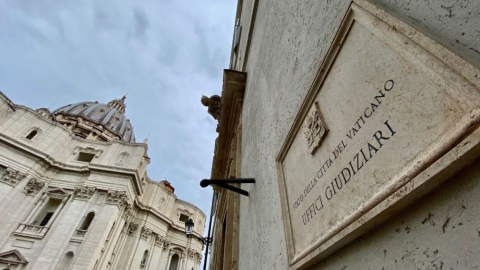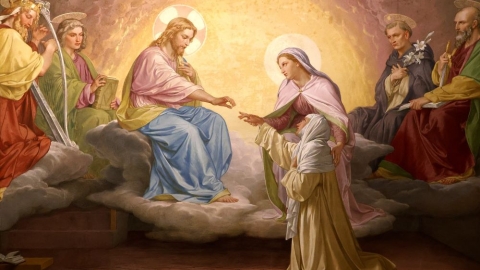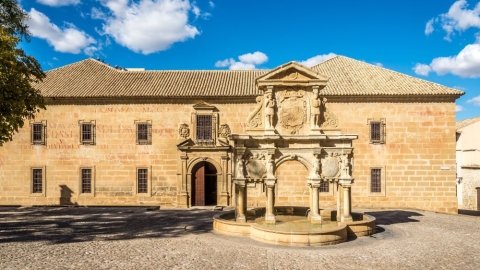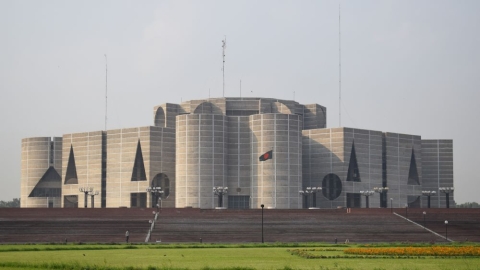Authority: The Real Challenge of the Synod (2)
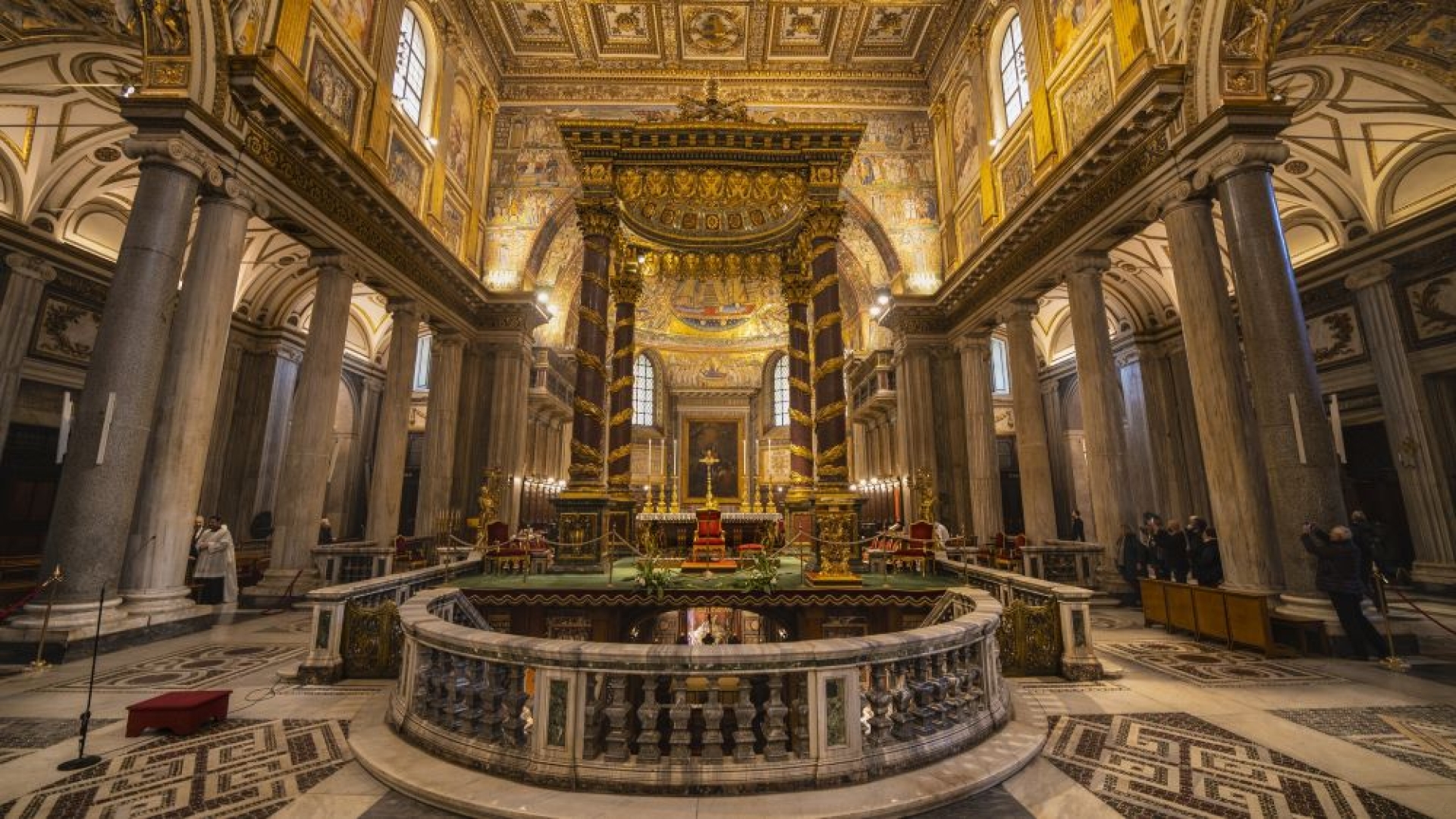
According to the modernist thought of Vatican II, authority comes from below and no longer from above. This extremely serious inversion of traditional doctrine explains the current pontifical oscillations between authoritarianism vis-à-vis tradition and capitulation in the face of liberal demands. The following is an continuation of the analysis of the Synod by Fr. Jean-Michel Gleize, SSPX.
1. “He taught them as having authority, and not as the scribes” (Mk. 1:22). Authority comes from God, that is, authority taken as such, and thus all authority. St. Paul says it (Rm. 13:1), but right reason already unveils it.
Therefore, all authority “comes from above,” for it is the particularized expression of the government of God, who uses human intermediaries to lead His creatures to the eternal happiness of heaven, and to lead them there in the way that suits their nature as human beings, that is, intelligently and in complete freedom.
This is how the world, coming from God, Who created and preserves it, returns to God. It is in fact God, Ultimate and Supreme End, Who all creatures seek. Each seeks according to the mode appropriate to their nature. Men strive for their End through intelligence and freedom.
And if several men strive together towards this same End, they need their intelligence and their freedom to be aided by an authority, whose role is to unify and order their efforts, with full knowledge of the cause.
Authority is therefore the help and aid, given by God to men, with an intelligence high enough to discern, beyond the particular goods of each one, the true good common to all. And it is also the help and aid of an intelligence equipped with all the power to make the decisions necessary for the acquisition and conservation of this common good.
2. Authority can therefore only be conceived in relation to a common good and to an End. Authority is defined as the help and assistance that human freedom needs to obtain this good and to achieve this end according to the proper modality, which is common action.
In the Church, the authority of the bishops and that of the Pope has no other meaning than in relation to eternal salvation. The first condition of this authority is the preservation and transmission of the deposit of faith, since faith is the beginning of salvation.
3. Opposed to this Catholic idea of authority, and to this Roman doctrine of power “which comes from above” (Jn. 19:11), is the modernism promoted by Vatican II, which itself is the consequence of “Rousseaueist” and immanentist doctrines that are ultimately Marxist. Theirs is a doctrine of power “which comes from below.”
This is the challenge of Francis’s pontificate, especially with the Synod on Synodality. And this is very serious. Given that, let us reflect that the authority of the Pope, in the Holy Church, is being undermined insofar as the holders of papal authority for more than half-a-century have been imbued with heterodox doctrines.
The Catholic and Roman ideal, desired by God for His Church, is being virtually destroyed by the inversion of authority, that is, by a new definition which fundamentally reverses its nature from top to bottom. Until now, authority descended to the People of God degree by degree through the Pope, the Vicar of Christ, and then through the bishops.
Now, it rises (or rather: it emerges) degree by degree, from the People of God (consecrated Priest, Prophet, and King) to the bishops and to the Pope. And if authority later comes down from the Pope and the bishops to the People, it is only to the extent that this authority is an expression of the common consciousness of the people. The Synod on Synodality is one of the privileged manifestations of this inversion.
4. This is the idea clearly expressed by Pope Francis in his speech on October 17, 2015: “A synodal Church is a Church which listens,” he said. “It is a mutual listening in which everyone has something to learn. The faithful people, the college of bishops, the Bishop of Rome: all listening to each other, all listening to the Holy Spirit, the ‘Spirit of Truth’ (Jn. 14:17), in order to know what he ‘says to the churches’” (Rev. 2:7).
And very recently, just before the opening of the Synod, in a speech delivered during the audience of August 23, 2023, the Pope returned again to this idea: “We are trying to learn a new way of living relationships, by listening to one another to hear and follow the voice of the Spirit.”
5. In such a conception, authority is no longer defined according to a common good and an end. And in the Church, the authority of the Pope is no longer conceived in terms of the deposit of the faith and the eternal salvation of souls. This is also why Bishop Joseph Strickland accused Pope Francis of “undermining the deposit of the faith.”
However, in the new “listening Church,” authority must no longer conform first and foremost to the requirements of an objective end; rather, it must adapt first and foremost to the mentality of its subjects. It is Charles Journet who said it again, when he explained how Protestantism, before modernism, accomplished the radical subversion of authority. [1]
The first concern of authority is no longer to impose a goal, but to consult the multitude; it is no longer to demand the right, but to record the fact; it is no longer to subject the multitude to the End, but to subject the End to the multitude. The ravages of this principle, he added, may be practically attenuated by whatever degree of natural reason or supernatural light there is left in Protestantism.
But Protestantism must be judged by its principle and its root. And this principle is contradictory. The same is true of the modernism of Vatican II and Pope Francis. The formula “authority comes from below,” which is at the heart of the “listening Church,” is in fact a contradiction.
Today, to uphold authority by continuing to act as if it came from above is viewed as oppression. However, to receive what comes from below and acting as if that is true authority leads to genuine oppression. Just like Protestantism, modernism, in its distorted conception of authority, oscillates between these two poles.
6. This is why we see Pope Francis, on the one hand, dismissing with unprecedented severity Bishop Strickland, a bishop who intended to remain faithful to the commitments made during his consecration, and, on the other hand, capitulating ever more to the liberal demands of the progressive portion of the People of God.
Cardinal Gerhard Ludwig Müller, former Prefect of the Congregation for the Doctrine of the Faith under Pope Benedict XVI, spoke out to say that he considered the dismissal of Bishop Strickland as “an arbitrary revocation” which would end up “undermining the authority of the Pope.”
In reality, this dismissal is only the consequence of an already misguided papal authority, an authority which now considers itself to come from below and no longer from above.
Fr. Jean-Michel Gleize
Fr. Jean-Michel Gleize is professor of apologetics, ecclesiology, and dogma at the Saint-Pius X Seminary in Ecône. He is the main contributor to Courrier de Rome. He participated in the doctrinal discussions between Rome and the Society of Saint Pius X between 2009 and 2011.
[1] Charles Journet, L’Esprit du protestantisme en Suisse [The Spirit of Protestantism in Switzerland], (Paris 1925).
(Source : La Porte Latine – FSSPX.Actualités)

